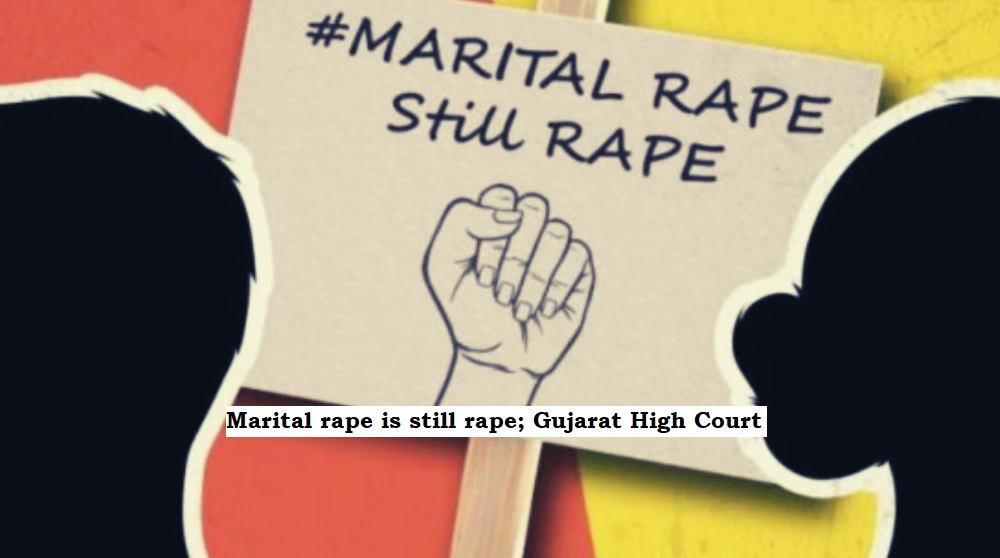


The Gujarat High Court has made a significant stance on the issue of marital rape, emphasizing its criminal nature regardless of the perpetrator being a husband. Amidst ongoing petitions seeking to criminalize marital rape before the Supreme Court, the Gujarat High Court offered a crucial observation, challenging the exception provided under Section 375 of the Indian Penal Code (IPC). This exception, outlined in Exception 2, spares husbands from punishment for sexual acts committed without their wife's consent, given she is above 18 years of age.
Disagreeing with this exemption, the court highlighted the global context, noting that marital rape is illegal in 50 American states, 3 Australian states, and several other countries. It drew attention to the United Kingdom's legal landscape, from which the IPC derives, pointing out the removal of a similar exception by a judgment in the House of Lords in 1991 (R v. R).
The court underlined the historical evolution, indicating that the IPC itself, shaped by past rulers, abolished the exception granted to husbands. This observation carries weight, challenging the prevailing norms and legal provisions that shield husbands from prosecution for sexual acts against their wives without consent.
In a specific case before the court, involving a woman accused of aiding, instigating, and abetting brutal sexual acts against another woman, the court delved into the details. The accused, the mother-in-law of the complainant, allegedly collaborated with her husband (complainant's father-in-law) and son (complainant's husband) in committing heinous acts.
The chargesheet filed by the police outlined disturbing details, accusing the accused of compelling their son to take explicit videos and photographs of the complainant, sharing them in a WhatsApp group. Additionally, it was alleged that the father-in-law sexually assaulted the complainant and installed a CCTV camera in the complainant's bedroom, viewing intimate moments on a TV screen. The accused was purportedly aware of her son uploading such videos on a porn website and sided with him against the complainant's complaints of sexual assault.
The court, in denying bail to the accused, noted the grave nature of the allegations and stressed that fundamental rights under Articles 14, 15, 19, and 21 apply to both men and women. It underscored the importance of breaking the silence surrounding gender violence, particularly in the context of marital rape.
The court acknowledged the pervasive issue of gender violence, often concealed in a culture of silence. It asserted that men bear a greater duty and role in averting and combating violence against women, highlighting the entrenched unequal power dynamics and cultural norms that contribute to such violence.
Furthermore, the court discussed the broader spectrum of sexual violence, ranging from severe offenses like rape to other forms such as stalking, eve-teasing, verbal and physical assault, and harassment. It criticized societal attitudes that trivialize or normalize such crimes, pointing out the lasting and harmful effects on survivors.
In conclusion, the Gujarat High Court's observations and decisions reflect a progressive stance on the issue of marital rape, challenging legal exceptions and societal attitudes. The court's emphasis on fundamental rights, gender equality, and the need to address root causes of violence against women contributes to a broader conversation on reshaping legal frameworks and societal norms to ensure justice and protection for all.
TAGS: Gujarat High Court Marital rape Section 375 IPC Exception 2 Global perspective Legal context United Kingdom precedent